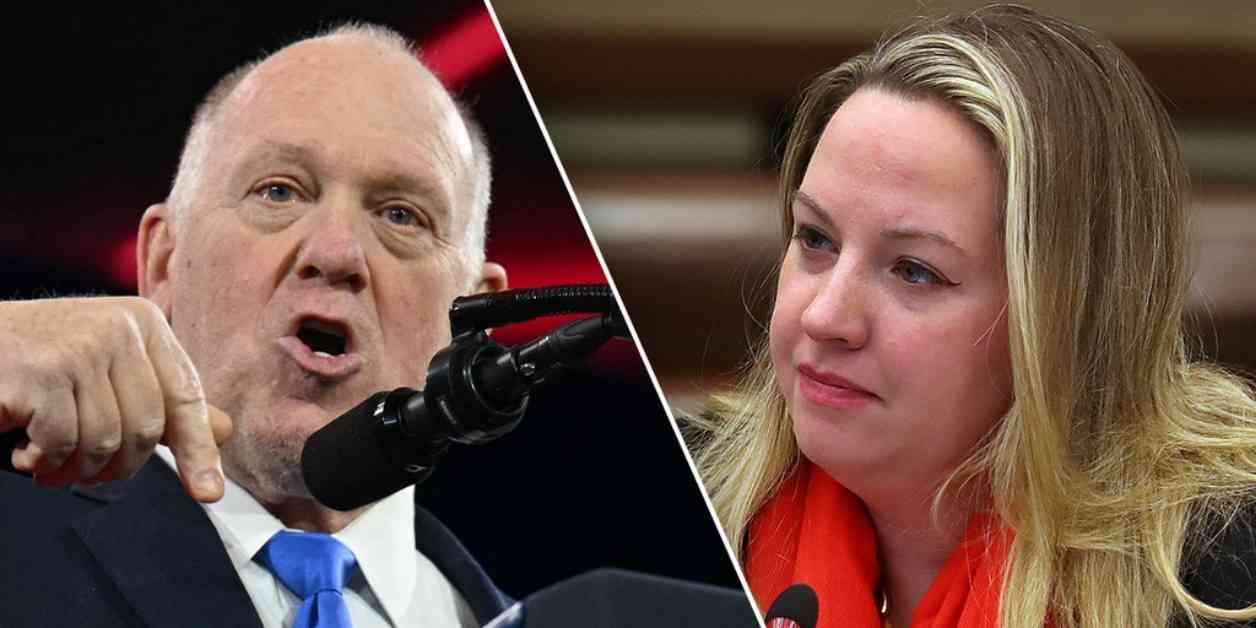Boston Councilwoman Stands Firm Against Border Czar’s CPAC Threat: A Clash of Policies and Principles
In a recent social media post, Boston City Councilwoman Sharon Durkan took a bold stand against Border Czar Tom Homan’s threats to enforce President Donald Trump’s border policies in Beantown. Homan’s fiery rhetoric, delivered at the Conservative Political Action Conference (CPAC), ignited a war of words between the federal government and local authorities.
Homan’s pointed remarks were triggered by Boston Police Commissioner Michael Cox’s unwavering support for the city’s sanctuary policies, which prioritize community trust over federal immigration enforcement. The clash of ideologies underscored the tension between federal mandates and local autonomy, setting the stage for a high-stakes showdown.
Councilwoman Durkan wasted no time in firing back at Homan’s inflammatory comments, questioning his credentials and credibility as a former law enforcement officer. Durkan’s scathing rebuttal highlighted the stark contrast between Homan’s federal authority and Cox’s local legitimacy, creating a contentious dialogue on public safety and immigration enforcement.
Challenging Authority: A Clash of Principles
Homan’s provocative statements targeted Cox’s refusal to cooperate with Immigration and Customs Enforcement (ICE) detainers, citing the release of criminal migrants back into the community. Homan’s aggressive rhetoric, fueled by statistics on released child rapists, sought to intimidate local officials and force compliance with federal immigration policies.
Durkan’s sharp retort exposed the power struggle between federal mandates and local autonomy, emphasizing the importance of community trust and integrity in law enforcement. By questioning Homan’s experience and motives, Durkan highlighted the complex dynamics of immigration enforcement and public safety in a diverse urban setting like Boston.
The exchange between Homan and Durkan encapsulated the broader debate over immigration policies, law enforcement priorities, and the role of local authorities in shaping community relations. The clash of principles and personalities underscored the challenges of balancing federal mandates with local values, creating a nuanced narrative of power, politics, and public perception.
Local Impact: Sanctuary Policies and Enforcement Actions
Boston’s sanctuary policies, which limit cooperation with federal immigration authorities, have drawn both praise and criticism for their impact on public safety and community relations. Commissioner Cox’s steadfast defense of these policies reflects the city’s commitment to inclusivity and trust-building, despite federal pressure to comply with ICE detainers.
The recent arrests of criminal migrants by ICE Enforcement and Removal Operations (ERO) in Boston have reignited the debate over immigration enforcement priorities and practices. The apprehension of MS-13 gang members and child rapists has raised concerns about public safety and the effectiveness of sanctuary policies in addressing criminal threats.
As Boston navigates the complex terrain of immigration enforcement and community policing, the clash between federal mandates and local autonomy continues to shape public discourse and policy decisions. The standoff between Homan and Durkan exemplifies the broader tensions between federal authority and local accountability in a diverse and dynamic city like Boston.
In the ongoing saga of competing priorities and principles, the voices of local officials, law enforcement leaders, and community advocates will play a pivotal role in shaping the future of immigration enforcement and public safety in Boston and beyond. The clash of policies and principles underscores the need for dialogue, collaboration, and mutual respect in addressing the complex challenges of immigration and law enforcement in a changing society.


